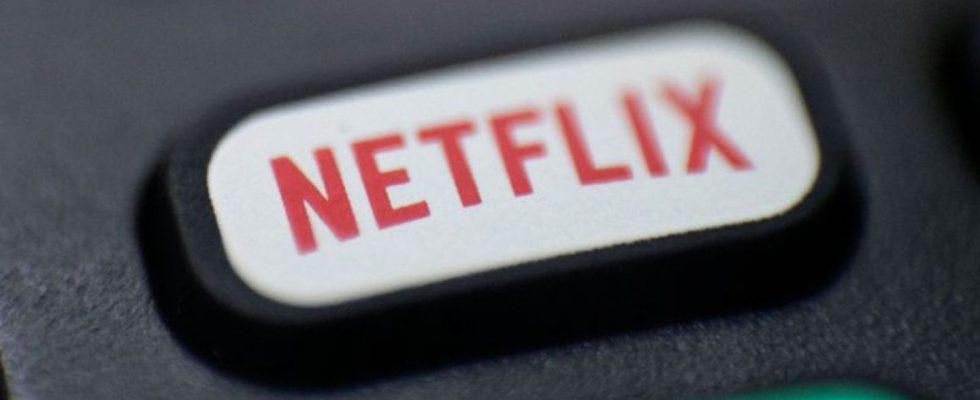streaming service
Netflix cracks down on password free riders
According to the streaming giant, the offensive against Netflix password sharing is expected to pick up steam this quarter. photo
© Jenny Kane/AP/dpa
Password sharing is normal for many Netflix users, but it’s becoming a thorn in the side of the streaming service. Now Netflix wants to take tougher action given its meager growth.
Things are about to get serious for Netflix users who share a password among themselves. After a month-long delay, the streaming giant plans to launch crackdowns on free riders in its key markets by the end of June. That should also include Germany. For users who do not live under the same roof as the account owner, extra money should then be due. At the same time comes the end of a relic of bygone times with which the company’s history began: DVD rentals by mail in the USA.
Netflix assumes that around 100 million households use the service with login data from others. That’s a high proportion of the 232.5 million paying customers in the last quarter. Netflix had long tolerated the sharing of credentials. In the meantime, however, there has generally been an increased focus on profitability in the video streaming business after the many providers had been hunting for higher user numbers for years.
Netflix was considering taking measures against free riders across the board in the first quarter, as the new co-boss Greg Peters said in a video conference on Wednesday night about the latest quarterly figures. However, after starting out in Canada, Portugal and Spain in February, the company took a break. Peters hinted at some problems with the transition. In the past few weeks, work has been done to ensure that users can seamlessly access Netflix when traveling, for example. One had the feeling that “it would be better to take a little more time”. Netflix does not provide any information on how exactly the systems recognize unauthorized multiple use of the logins.
Subscription model with advertising
Netflix sets the prices for additional users of an account outside the household individually for each market, said Peters. In Portugal it was 3.99 euros per month when it started in February and in Spain 5.99 euros. In Germany, the price is more likely to be at the upper end of this range. At the same time, Netflix introduced a cheaper subscription model with advertising.
Netflix is betting that the movies and series on offer have enough appeal to make today’s free riders pay. After the experiences in the first countries, the service feels encouraged in this. The first reaction, as with price increases, was to do without, Peters admitted. In Canada, however, you now have more paying users and more sales than before.
Netflix could use a boost like this. In the first quarter, the number of customers increased by 1.75 million. Experts had expected a much stronger increase. The outlook for the current quarter was also mixed. Netflix only expects an upswing in the second half of the year.
Netflix increased sales in the three months to the end of March by almost four percent year-on-year to $8.2 billion. Profits fell by around 18 percent to a bottom line of 1.3 billion dollars. Netflix doesn’t expect any big leaps in the second quarter – revenue and net income are likely to stagnate more or less.
No more DVD rentals
Netflix also announced that it will end DVD rentals after around 25 years. Shipping by post, which is not available in Germany, was the original business model of the company founded in 1997. Legend has it that Netflix’s story even began with a rental video. Founder Reed Hastings misplaced a video cassette and was annoyed by the video store’s overdue fines, as he later said. This gave rise to the business idea of a DVD flat rate. In the streaming age, however, this service hardly played a role anyway. Netflix justified the end with the low usage.
Peters also commented on a recent glitch: The planned live broadcast of a meeting of participants of the dating show “Love Is Blind” was canceled due to technical problems and had to be made available in a recording. It was Netflix’s second live stream after a seamless broadcast of a performance by comedian Chris Rock. Netflix later introduced a software bug while trying to improve its technology for live broadcasts, Peters said. This only became noticeable when different systems interlocked and millions of viewers wanted to access the stream.

